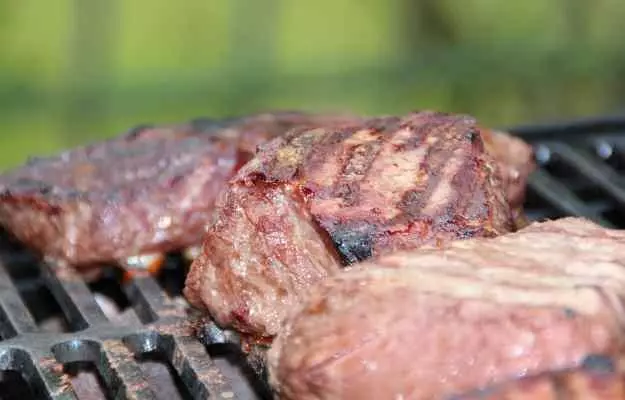Meat is broadly classified into two types, that is, red meat and white meat, with the latter being consumed more commonly in India.
Red meat
Red meat refers to the type of meat which is red in colour before being cooked and later on takes up a nice brownish or a dark hue. Although some types of red meats are not a part of Indian cuisine, others like lamb meat are widely consumed. Red meat typically includes beef meat, lamb meat, mutton, goat meat, horse meat and pork meat. As delectable it may taste and as high protein content it may pack, regular consumption of red meat is detrimental to your health. So, it is recommended to eat this type in moderation. Other than the above conventional sources, red meat is also abundantly present in dishes and sides like bacon, sausages, hot dogs, meat pies, meatballs, lamb chops and a number of kebabs and grills. It is important that you be highly mindful when consuming these foods and not make them a part of your daily diet. Choosing lean varieties of these meats and cooking them in a healthy manner can help do away with the side effects while providing an excellent protein source for you.
White meat
White meat refers to the type of meat, which is pale to white in colour before cooking and stays the same after. This type of meat is associated with fewer side effects and could thus be a great addition to your diet. White meat sources are chicken meat, rabbit meat, turkey meat, game meat, duck meat, goose meat and the meats of other poultry and farm birds. Even when consuming these type of meats, it is important that you ensure that the meat is properly cooked. Only purchase your meat from reliable stores, which preserve these in utmost hygienic conditions.
White meat is further classified into light and dark sources. For chicken, parts like breast provide you with light meat whereas legs store the dark variety. Light meats are typically lesser in saturated fats and calories and are considered to be lean and healthy. So, even while choosing white meat, it is recommended that you opt for the right sources and not consume an excess. It is also important that you adopt healthy recipes.












